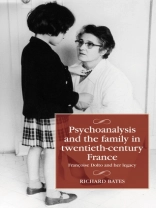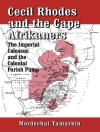In the last quarter of the twentieth century, if French people had a parenting problem or dilemma there was one person they consulted above all: Françoise Dolto (1908–88). But who was Dolto? How did she achieve a position of such influence? What ideas did she communicate to the French public? This book connects the story of Dolto’s rise to two broader histories: the dramatic growth of psychoanalysis in postwar France and the long-running debate over the family and the proper role of women in society. It shows that Dolto’s continued reputation in France as a liberal and enlightened educational thinker is at best only partially deserved and that conservative and anti-feminist ideas often underpinned her prominent public interventions. While Dolto retains the status of a national treasure, her career has had far-reaching and sometimes harmful repercussions for French society, particularly in the treatment of autism.
Cuprins
Introduction: Doltomania
1 Family neuroses: psychoanalysis in interwar France
2 Dutiful daughters: Françoise breaks free?
3 Humanism, holism and guilt: Dolto, psychoanalysis and Catholicism from Occupation to Liberation
4 Family politics: popularising psychoanalysis, 1945–68
5 Autism, antipsychiatry and the pathogenic family: Dolto and the psychoanalytic approach to autism in France
6 Radio star: psychoanalysis in the public sphere, 1968–88
Afterword
Index
Despre autor
Richard Bates is a Teaching Associate in History at the University of Nottingham












